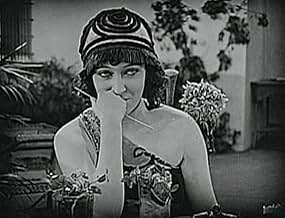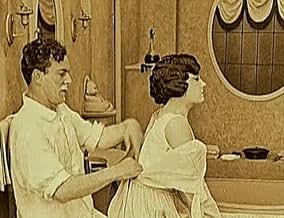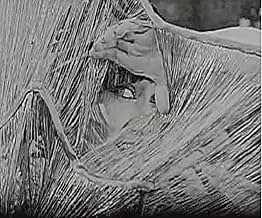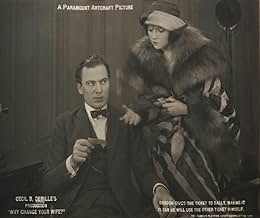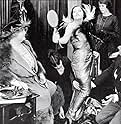Agrega una trama en tu idiomaRobert and Beth Gordon are married but share little. He runs into Sally at a cabaret and the Gordons are soon divorced. Just as he gets bored with Sally's superficiality, Beth strives to imp... Leer todoRobert and Beth Gordon are married but share little. He runs into Sally at a cabaret and the Gordons are soon divorced. Just as he gets bored with Sally's superficiality, Beth strives to improve her looks. The original couple falls in love again at a summer resort.Robert and Beth Gordon are married but share little. He runs into Sally at a cabaret and the Gordons are soon divorced. Just as he gets bored with Sally's superficiality, Beth strives to improve her looks. The original couple falls in love again at a summer resort.
- Dirección
- Guionistas
- Elenco
- Doctor
- (as Clarence Geldart)
- Naval Officer at Hotel
- (sin créditos)
- Party Guest Dozing
- (sin créditos)
- Girl in Bathing Suit
- (sin créditos)
- Sally's Maid
- (sin créditos)
- Dirección
- Guionistas
- Todo el elenco y el equipo
- Producción, taquilla y más en IMDbPro
Opiniones destacadas
After the divorce Swanson overhears two women gossiping about her in the next changing room. She decides to "jazz up her lingerie" and win the husband back. Of course they all end up at the same Atlantic City hotel where the transformed Swanson (what a bathing suit!) catches his eye anew. Through a series of plot twists, including the manic cat fight between the two women with threats of throwing acid, poor Bebe concedes defeat and (after emptying his wallet of cash) leaves him to Swanson.
Good fun and all 3 stars are terrific. Also taking center stage are the women's fashions (hilariously "exotic") and the interior decor. DeMille was the first director to understand the importance of film as a TREND SETTER and basically created the product endorsement mania so prevalent in today's films.
Sylvia Ashton is Aunt Kate, Theodore Kosloff is the violinist, Lucien Littlefeld is the butler, and William Boyd is one of the hotel guests. The hotel is quite a spot, and mention should be made of the cat and dog fight which presages the battle between Swanson and Daniels. The dog is funny, and the cat is named Toodles, which was the name of the home wrecker played by Julia Faye in the preceding "marriage" film: Don't Change Your Husband.
This is a great romp, getting better with every scene. It is not good to women, though, making them out to be selfish and catty. It also makes it seem that a woman's role is to be beautiful for her man, and if she isn't, he practically has the right to leave her. I mean, come on now!
The leads (three of them) are all first rate. The man is a charmer, really convincing and natural, Thomas Meighan. His wife (at first) is Gloria Swanson, a silent screen staple (especially for director Cecil B. de Mille who directed six straight films with Swanson, including the parallel, Don't Change Your Husband (1919). But the third other woman is Swanson's match, Bebe Daniels, and if she isn't as famous, it's only because time is fickle.
Because the three are so well balanced, both in ability and in the way they are given time together (in all three possible combinations, plus all three of them together), the film really builds momentum well. The modernity of flipping wives was probably part of the racy appeal, and it might seem a little staid by our standards, where there is (sometimes) less gravity to a marriage.
Music is key, which might seem odd for a silent film, but by showing us the 78 records being put on, the audience knows what the soundtrack would be. (The actually sound tacked on to my DVD version of this film is a brutal melange of found orchestral pieces that cut in and out, hither and tither.) For those interested in the actual piece called Hindustan that is key in three scenes (and key to the changing sentiments of the women) go to www.archive.org/details/JosephC.SmithsOrchestra-01-07 and you can actually click on piece to hear it (a lively pre-jazz dance type number).
So is this a pertinent film? In a way, it is. It's basic theme of paying attention to what your mate needs, and appreciating their attentions, is pretty timeless. But in other ways the film is sadly, painfully retrograde, and it isn't just because it's 1920. The way the women vie for the man, and the way he lets them, and ultimately the way he treats the Daniels character (who does him no wrong any more than the Swanson one does), is just cheap and tossed around for comedic purposes. Which is how you can take it and enjoy it. More than you'd expect.
The second half of this double-bill features one of the very few surviving films of Cecil's older brother William de Mille (he kept the original family spelling) who started his career as a successful Broadway playwright. One of his plays THE WARRENS OF VIRGINIA from 1907 featured Cecil as an actor and a 15 year old performer named Mary Pickford. MISS LULU BETT was based on the stage version of a then famous book which examined the lonely life of a maiden aunt and her attempts to break free from the stifling enviornment of her sister's family. This is a silent example of what was then called a "woman's picture" which we know today as a "chick flick". It concentrates on plot and slow development of character rather than fast pacing and lots of action. In style it is very similar to the films of Lois Weber especially THE BLOT (also reviewed by me) which came out the same year, 1921, just one year after women received the right to vote. The ensemble performances by the family are all solid with Lois Wilson a standout as the title character. Wilson was a big star for Paramount in the early 1920's later appearing in 1923's THE COVERED WAGON. Although LULU is dated by today's standards, it's fascinating to see just how dated and just how far single women have come since 1921. While I enjoyed WIFE, I have to give the nod here to brother William as I got more out of his film than I expected. Hopefully more of them will become available for us to see...For more reviews visit The Capsule Critic.
¿Sabías que…?
- TriviaFor a silent movie, music plays an important part in it, with a private music recital and a public orchestra performance giving the mood for two scenes. Most significantly, music records with three different types of music are prominently displayed in the hands of two main actors, and are intrinsic to the story development.
- Citas
Beth Gordon: Do you expect *me* to share your Oriental ideas? Do you want your *wife* to lure you like a - a - Oh why didn't you marry a Turk?
- ConexionesFeatured in Hollywood (1980)
- Bandas sonorasHindustan - Fox Trot
By Oliver G. Wallace and Harold Weeks
Interpreted by Joseph C. Smith's Orchestra
Published by Victor 18507-A
Selecciones populares
Detalles
- Tiempo de ejecución1 hora 30 minutos
- Color
- Mezcla de sonido
- Relación de aspecto
- 1.33 : 1



